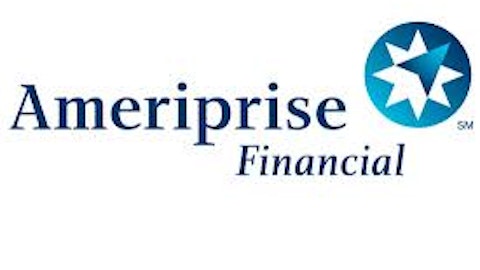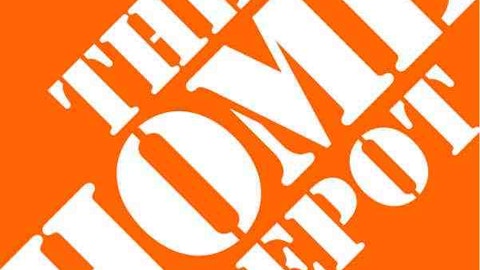Capital One Financial Corp. (NYSE:COF)’s famous slogan is “what’s in your wallet?”, but I’m less concerned with what’s in your wallet and more concerned with what’s in your portfolio. Let’s check out how you should trade the three major credit card companies.
The mid-market player
Big news for Capital One Financial Corp. (NYSE:COF) of late is that the Fed will approve a $1 billion buyback if the credit card company sales off its Best Buy branded credit card to Citigroup Inc. (NYSE:C). Another positive that’s already come out of the Fed stress test in February is that the company upped its quarterly dividend payment from $0.05 to $0.30, the first increase since the start of the financial crisis.
Capital One Financial Corp. (NYSE:COF) made its big foray into the the deposit market with its early 2012 acquisition of ING Direct, boosting the credit card company’s deposits by over 75%. With the acquisition, Capital One is becoming an even greater bank-credit card hybrid. The ING acquisition put Capital One as the sixth largest deposit taker in the U.S.
In May 2012, Capital One Financial Corp. (NYSE:COF) acquired HSBC’s U.S. credit card business, making a bigger bet on the broad recovery in the U.S. credit card market. Even with its move into the banking business, the company has refrained from making the move into the questionable mortgage business.
Serving the high-end
American Express Company (NYSE:AXP) is the leading credit card company. Revenue is expected to growing nicely over the interim — projected to be up 6% in 2013 and another 7% in 2014.
The consumer finance industry should have some serious tailwinds thanks to improving credit quality, (a positive for American Express), which gets over 50% of its revenues from U.S. card services. American Express Company (NYSE:AXP) is also breaking out of the its conventional credit card business model by targeting the prepaid card market, including its partnership with Target.
American Express Company (NYSE:AXP) also has a solid balance sheet, with over $20 billion in cash at the end of its first quarter. This should help further drive the company’s strong dividend and share buyback plan — American Express plans to return 50% of its excess capital to investors, which should allow the company to meet its 25% return on equity target, compared to its current 23%.
Tapping the low-end market
Discover Financial Services (NYSE:DFS) is another major credit card company. At the end of its first quarter, the company had a portfolio of over $60 billion of receivables — 81% credit card, 13% private student loans, and 6% personal loans. The tightening of its credit standards is beginning to benefit the credit card company, where delinquency rates, in 2011, were at their lowest in over two decades.
Discover is looking to expand its direct to consumer offerings, but unlike Capital One Financial Corp. (NYSE:COF), which recently tapped the deposits market, Discover is turning to loans, with a focus on mortgage and home equity loans. Its acquisition of Home Loan Center added a residential mortgage offering to Discover’s services. Discover now offers commercial and Federal Housing Administration loans.
Discover’s next big venture is in the international markets. Discover started offering Diners Club International cards in China during mid-2012, and in late-2012, inked a deal with Russian Stand Bank to offer Discover cards in Russia.
Hedge fund trade
At the end of its first quarter, Capital One Financial Corp. (NYSE:COF) had the most hedge fund interest among the three credit card companies with 58 hedge funds long the stock. Meanwhile, American Express Company (NYSE:AXP) had 47 hedge funds long the stock, a 15% decrease from the previous quarter. Billionaire Warren Buffett of Berkshire Hathaway owns close to $10.3 billion of American Express stock, comprising 12% of its total 13F portfolio. Close behind American Express was Discover, with 46 hedge funds long the stock, an 18% increase from the previous quarter.
Bottom line
Part of the story that makes Capital One Financial Corp. (NYSE:COF) appealing is that the stock trades at a hefty discount to both major peers on a price to book basis.
And it pays the highest dividend yield…
Capital One also has one of the top balance sheets, with a debt to equity ratio of 88%.
All in all, of these three major credit card companies, Capital One Financial Corp. (NYSE:COF) appears to be the best bet. However, American Express has a strong brand name and an affluent customer base that helps insulate the company from the broader economy, while Discover has made the foray into the housing market, which could be a long-term growth driver. Thus, both companies may also be worth a look.
The article Is it Time to Reconsider What’s in Your Wallet? originally appeared on Fool.com and is written by Marshall Hargrave.
Marshall Hargrave has no position in any stocks mentioned. The Motley Fool recommends American Express. Marshall is a member of The Motley Fool Blog Network — entries represent the personal opinion of the blogger and are not formally edited.
Copyright © 1995 – 2013 The Motley Fool, LLC. All rights reserved. The Motley Fool has a disclosure policy.









